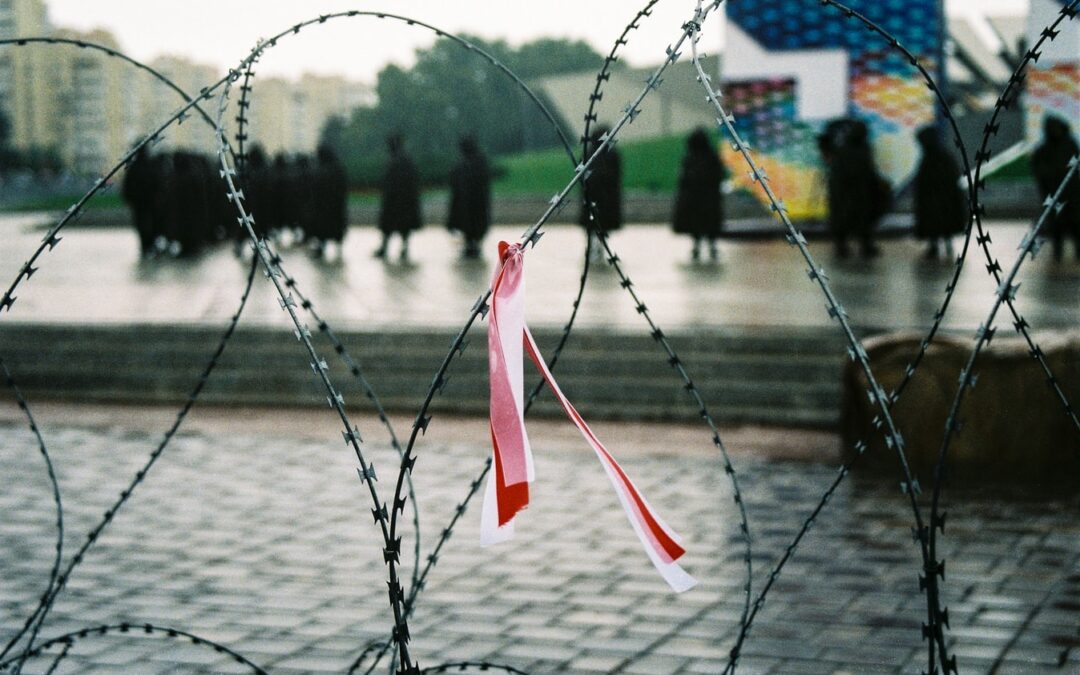Poland’s government and the European Commission have condemned the recent arrests of prominent figures from Belarus’s ethnic Polish minority. The foreign ministry today warned that Poland could impose sanctions over the issue.
On Tuesday, Andżelika Borys, the head of the Union of Poles in Belarus (ZPB), was arrested. The ZPB is a group that represents the Polish community in Belarus, who according to official data number around 300,000 (3% of the population). Unofficial estimates put the figure higher.
Today, the Belarusian prosecutor general said that Borys and others from the ZPB are facing criminal proceedings for inciting hatred and rehabilitation of Nazism, reports RMF FM. Those crimes could carry prison sentences between five and 12 years.
The accusations relate to “a series of illegal mass undertakings with the participation of minors, during which members of anti-Soviet gangs operating during and after the Great Patriotic War were honoured”, according to a statement from the prosecutor general, quoted by RMF.
These gangs “plundered and murdered civilians and destroyed property,” continued the statement, adding that the activities of the ZPB were “aimed at rehabilitating Nazism and justifying the genocide of the Belarusian nation”.
The claims are likely to relate to events honouring the so-called “cursed soldiers” (żołnierze wyklęci), partisans who resisted the introduction of communism in Poland after World War Two. Some of the fighters were involved in war crimes against non-Polish ethnic groups, including Belarusians.
Earlier this month, Belarus expelled a Polish diplomat for taking part in the commemoration of the “cursed soldiers”, with Poland expelling a Belarusian envoy in response.
For more on the controversy over honouring "cursed soldiers" accused of war crimes against Belarusian civilians see our report from last year https://t.co/LxFJLKk1E6
— Notes from Poland 🇵🇱 (@notesfrompoland) March 12, 2021
Today, another board member of the ZPB, Polish-Belarusian journalist Andrzej Poczobut, was also detained. ZPB offices and the homes of some members were searched. The head of one of its local branches, Irena Biernacka, was taken to a police station.
Poczobut’s wife Oksana told the Polish Press Agency (PAP) that officers wearing balaclavas searched their home this morning, confiscating all telephones and computers, including those of their children. The Poczobuts were told that the investigation related to incitement of hatred.
The Polish prime minister’s chief of staff, Michał Dworczyk, however, told TVN24 that the arrests are part of efforts to “intimidate the Polish minority”. He noted that for several weeks there have been efforts by Belarusian media “clearly intended to create tension between Poles and Belarusians”.
Dworczyk added that Poczobut, who has been arrested a number of times in the past over his journalistic activity, is seen as “a special threat in the eyes of the regime” for his reporting on the situation in Belarus.
In response to the developments, the Polish government has banned the Belarusian judge who authorised the detention of Borys from entering Poland indefinitely. Dworczyk warned that every official involved in the repression of the Polish minority “will suffer consequences”.
This afternoon, Poland’s deputy foreign minister, Marcin Przydacz, warned that the “hostile attitude of the Belarusian authorities will be met with an appropriate response from Poland”, reports Polsat News. This “of course [includes] the possibility of extending sanctions”, he added.
Poland’s permanent representation to the European Union today issued an appeal for “EU institutions [to take] decisive actions in support of democratic Belarus” and to “end the repression of Lukashenko’s regime”. Prime Minister Morawiecki raised the issue at the today’s European Council meeting, reports PAP.
In a statement to PAP, the European Commission condemned Belarus’s actions against Borys and Poczobut, saying they are “a clear sign that the Polish minority is the latest target for…repression”. The EU’s foreign policy chief, Josep Borrell, called on Minsk “to immediately and unconditionally release Borys and Poczobut”.
Today Andrzej @Poczobut, a board member of the Union of Poles in Belarus and journalist was arrested in #Grodno.
We reiterate our call on the #EU institutions for decisive actions in support of democratic #Belarus.
Repression of Lukashenko’s regime must end. #FreedomOfMedia pic.twitter.com/wns7hYHTmL
— Poland in the EU (@PLPermRepEU) March 25, 2021
Since protests emerged in response to widespread evidence of fraud at Belarus’s presidential election last year, Poland has sought to lead EU efforts in support of the Belarusian democratic opposition against President Alexander Lukashenko.
In September, Belarusian opposition leader Sviatlana Tsikhanouskaya met Morawiecki in Warsaw during her first official trip abroad after fleeing Belarus for exile in Lithuania.
Later that month, the Polish government called for the EU to offer a “Marshall Plan” for Belarus that would provide the country with economic support if it agreed to void the contested elections and instead hold a free and fair vote.
The government also supported a concert at Warsaw’s National Stadium to show solidarity with Belarus. In the two months after the elections, over 700 Belarusian refugees were given protection in Poland.
Such actions have drawn an angry response from Minsk. Lukashenko accused Poland of seeking to capitalise on the situation in his country by reclaiming former Polish territories from Belarus. No such ambition has been expressed by any mainstream politician or commentator in Poland.
Russia, an ally of Minsk, also criticised the Polish government for “openly interfering in the domestic affairs of the Republic of Belarus”. The Kremlin “urged Warsaw to return to the universally accepted norms of international law and renounce its policy of undermining the sovereignty of its neighbour”.
Main image credit: Jana Shnipelson/Flickr (under public domain)

Daniel Tilles is editor-in-chief of Notes from Poland. He has written on Polish affairs for a wide range of publications, including Foreign Policy, POLITICO Europe, EUobserver and Dziennik Gazeta Prawna.




















